Your support helps us to tell the story
From reproductive rights to climate change to Big Tech, The Independent is on the ground when the story is developing. Whether it's investigating the financials of Elon Musk's pro-Trump PAC or producing our latest documentary, 'The A Word', which shines a light on the American women fighting for reproductive rights, we know how important it is to parse out the facts from the messaging.
At such a critical moment in US history, we need reporters on the ground. Your donation allows us to keep sending journalists to speak to both sides of the story.
The Independent is trusted by Americans across the entire political spectrum. And unlike many other quality news outlets, we choose not to lock Americans out of our reporting and analysis with paywalls. We believe quality journalism should be available to everyone, paid for by those who can afford it.
Your support makes all the difference.The Great Pyramid of Giza, the oldest of the Seven Wonders of the Ancient World, was built over a 20-year period. Construction of the Taj Mahal in India took even longer: 22 years. By those standards, the fight that's being hyped as if it's the latest Wonder of the World has developed in a relative snap, writes Bernard Fernandez for Bleacher Report.
When Floyd Mayweather Jr. and Manny Pacquiao enter the ring on 2 May at the MGM Grand in Las Vegas, it will have taken only five-plus years. But for those whose hopes have so frequently been raised and then dashed, the making of Mayweather-Pacquiao has seemed like simultaneously erecting the Great Pyramid, the Taj Mahal and, oh, maybe the Parthenon and Roman Colosseum as well.
It's been an excruciating and drawn-out process, with no certainty of any final payoff—at least until Mayweather finally announced the fight last Friday.
So how did this superfight, the road to which had been so obstacle-strewn, finally reach fruition?
Bleacher Report spoke to many of those close to the negotiations to get the inside story. The answer, as detailed below, is a combination of luck, hard work, willpower and, of course, a whole lot of money.
--
After years of deadlock, one of the first significant roadblocks to be cleared was overcome by pure coincidence.
Mayweather and Pacquiao were both sitting courtside in Miami on 27 January (below) for a Heat-Bucks game. Both are avid basketball fans, and neither knew the other would be there. They arranged to talk at half-time at center court, where they shook hands and exchanged telephone numbers. Later that night, they continued their impromptu and mostly amiable discussion in Pacquiao's hotel suite.
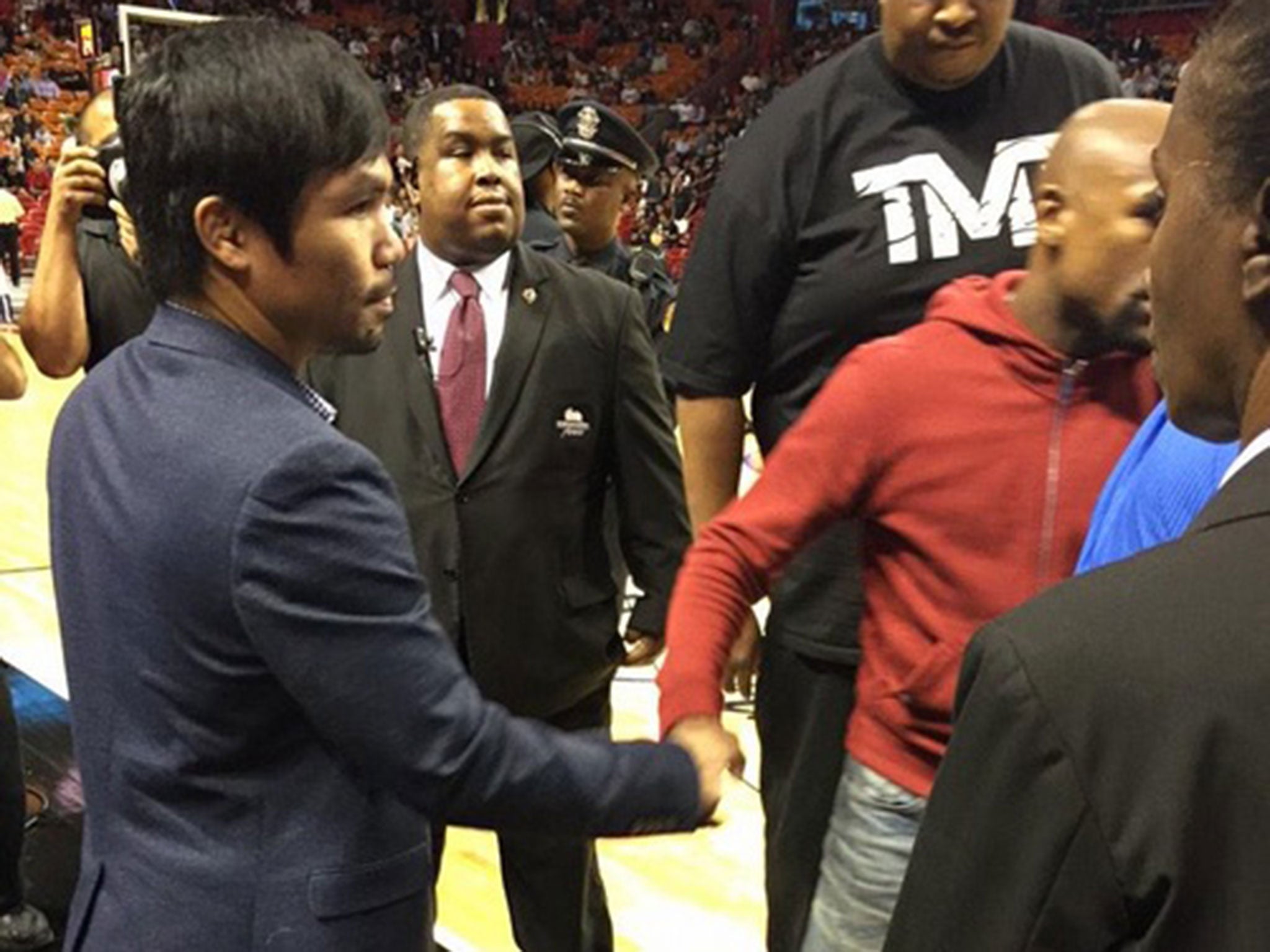
OK, so it wasn't exactly Franklin D. Roosevelt and Joseph Stalin putting their heads together, along with Winston Churchill, for the historic summit conference at Yalta. But still, that night Mayweather and Pacquiao discovered they just might have more in common than either realized. After years of staring at each other across a chasm of distrust, the two finest boxers of their generation came away with at least an inkling that the Fight Everyone Wants to See had a chance to be made.
"It's one of those fortuitous coincidences that we probably could never have planned," said Stephen Espinoza, Showtime Sports executive vice president and general manager. "We're very lucky. …I won't say that the deal wouldn't have happened without that, but it wouldn't have happened as quickly.
"Possibly it wouldn't have happened at all."
Espinoza said the direct line of communication opened that night between Mayweather and Pacquiao greased the wheels for the previously stalled negotiations and "cleared up a lot of doubts in both of their minds and sort of renewed their commitment to getting this fight done."
That started the process, but even with greased wheels, it wouldn't be easy. It took nearly another month of protracted negotiations—involving representatives of Mayweather and Pacquiao, as well as those of HBO and Showtime, who will co-produce the pay-per-view event—to resolve a litany of issues.
Under normal conditions, Moonves would spend more of his time deciding whether to cancel a poorly performing sitcom than playing an active role in the boxing portion of the entertainment conglomerate he oversees. But he's a bottom-line guy and wasn't about to sit still and watch CBS/Showtime's six-bout, $250 million deal with Mayweather continue to leak red ink onto the company spreadsheets.
Three of the four fights Mayweather has done under the deal have underperformed. A potential Mayweather-Pacquiao bout had a chance to turn that around.
Moonves also has a longstanding relationship with Top Rank CEO Bob Arum, who promotes Pacquiao and who used to promote Mayweather before an ugly falling out. Arum gave Moonves all the credit for pushing the latest round of negotiations forward.
"Without Les Moonves," Arum said, "this fight wouldn't have had a prayer of happening. The real hero in getting this done is Les Moonves."
Espinoza agreed.
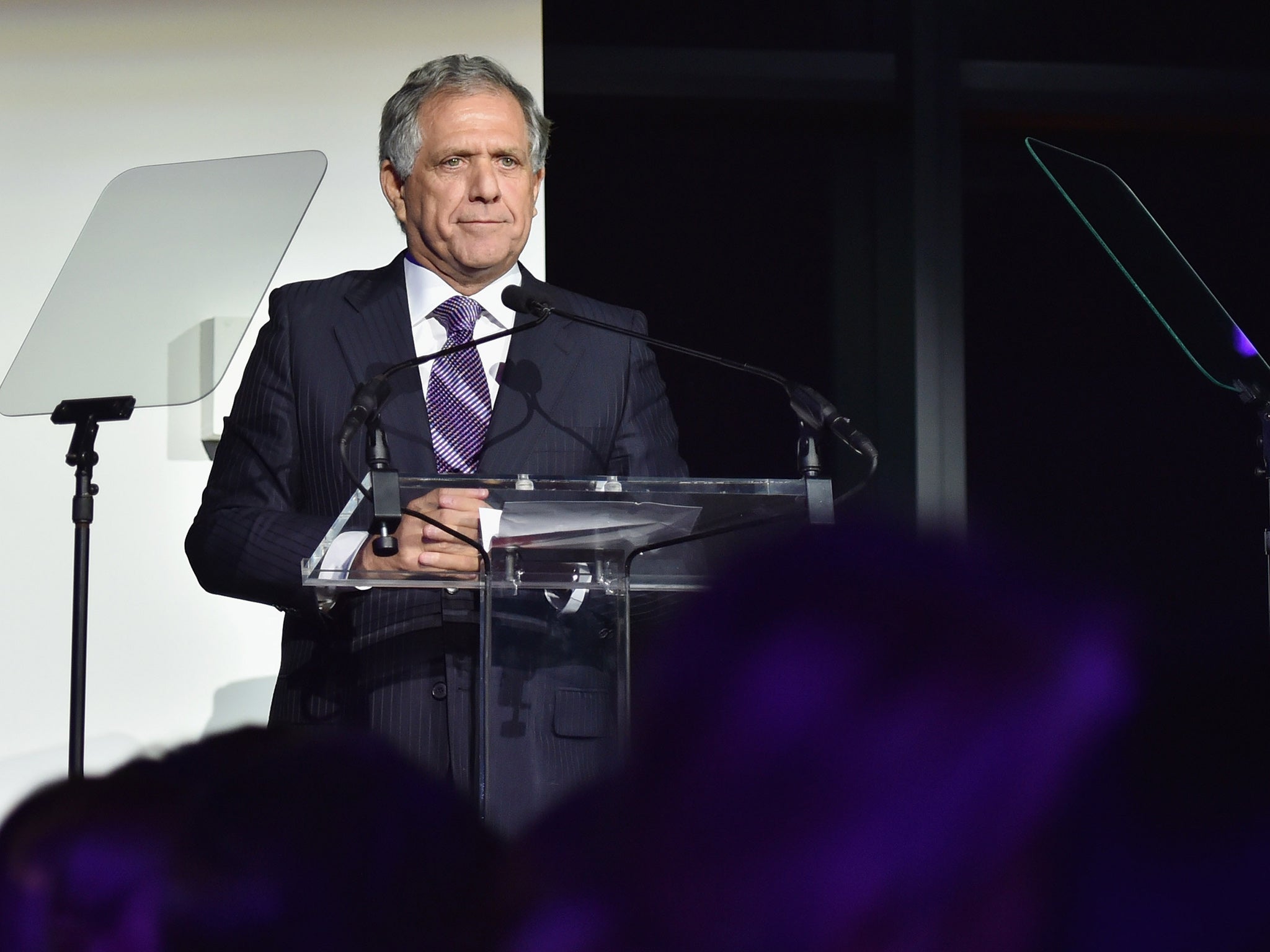
"One of the main reasons this deal got done, when maybe the other ones didn't, was having Leslie Moonves as part of the process," Espinoza said. "He was deeply committed to making this deal. He is someone that all parties in this negotiation respected. He was really the catalyst for seeing this through.
"He refused to take no for an answer from any side. He was there making sure that the parties came together in a successful and cooperative manner."
--
Getting the parties together meant getting both boxers on board—as well as HBO, for whom Pacquiao has long been a top headliner; and Showtime, which has had Mayweather under contract since 2013.
On the corporate front, there are still details for Espinoza and HBO Sports President Ken Hershman to work out: Who will comprise the "all-star" combined announcing team? Will HBO or Showtime, or both, televise the replay the week after the live pay-per-view telecast? And what about the infomercials that each premium-cable entity produces to whet the public's appetite?
"It will be a tremendous amount of work," Espinoza said. "It will be a complex undertaking. But we're confident that between the smart people here at Showtime and the smart people at HBO, we'll have everything in order to do a tremendous promotion."
And really, that's all kid stuff. The biggest hurdle was getting Mayweather to sign up.
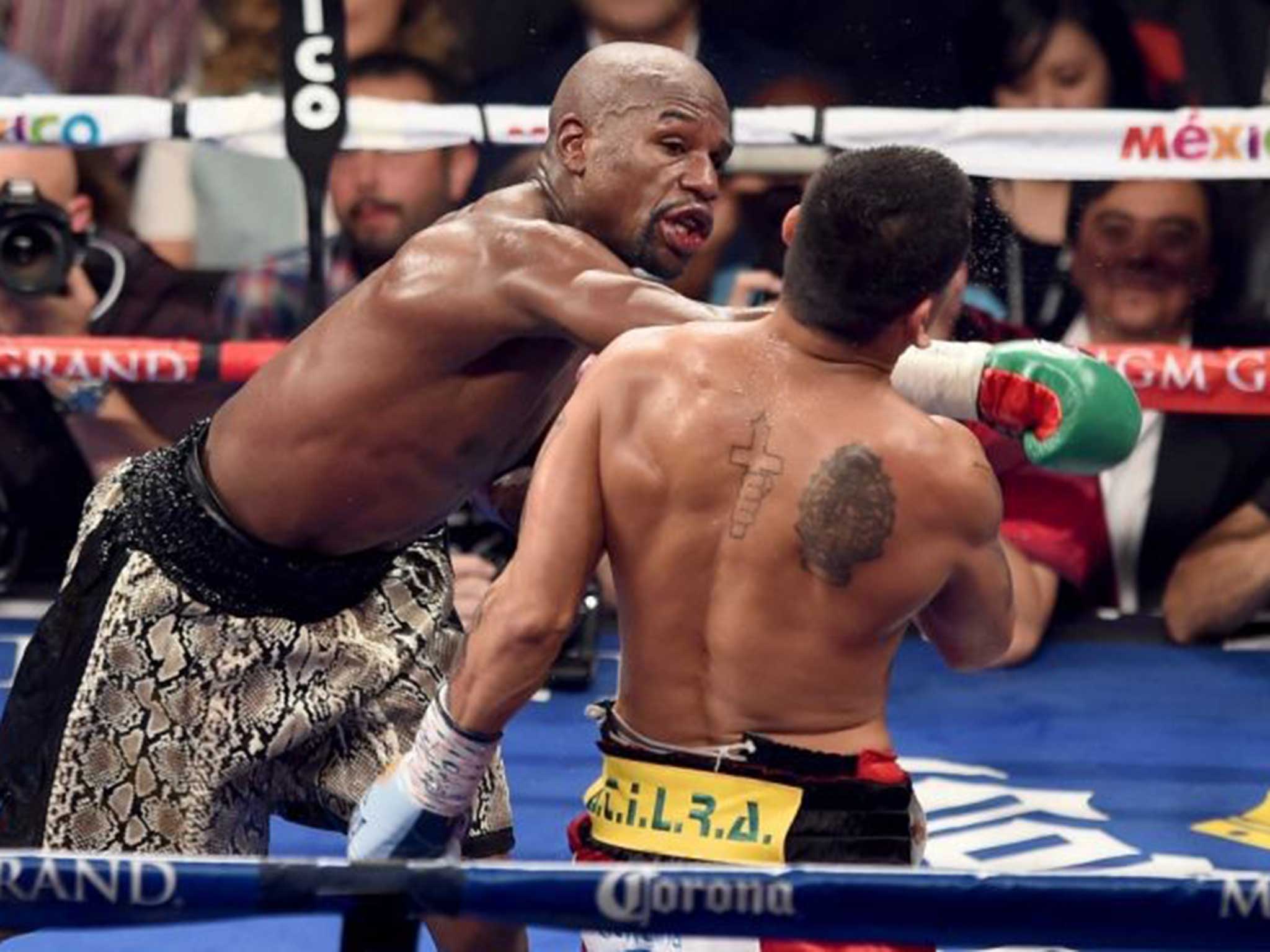
Earlier this month, former HBO Sports President Seth Abraham predicted that the fight would never happen because of Mayweather's reluctance to risk his perfect 47-0 record (26 KOs), in which he places great stock, against Pacquiao (57-5-2, 38 KOs), arguably the most dangerous opponent he would ever face.
"I do not believe this fight will take place, now or ever," Abraham said. "I don't think Floyd wants it. I think he's just having fun messing with everybody.
"Could it happen? Of course it could happen. But if I were at HBO, I'd be thinking about what fights could be made for Pacquiao as he heads off into the sunset, because I do not believe Mayweather will make this fight."
So what convinced him to do it? Mayweather's not the type to say. The meeting at the Heat game seemingly brought down the walls of Jericho, as did the persistence and persuasion of Moonves.
The money factored in, too. Pacquiao could make $80 million and Mayweather a record $120 million, if the pay-per-view projections are realized—simply too much to continue to turn away from, especially now that both fighters have started on the downhill slope of their remarkable careers.
Maybe the time was just right.
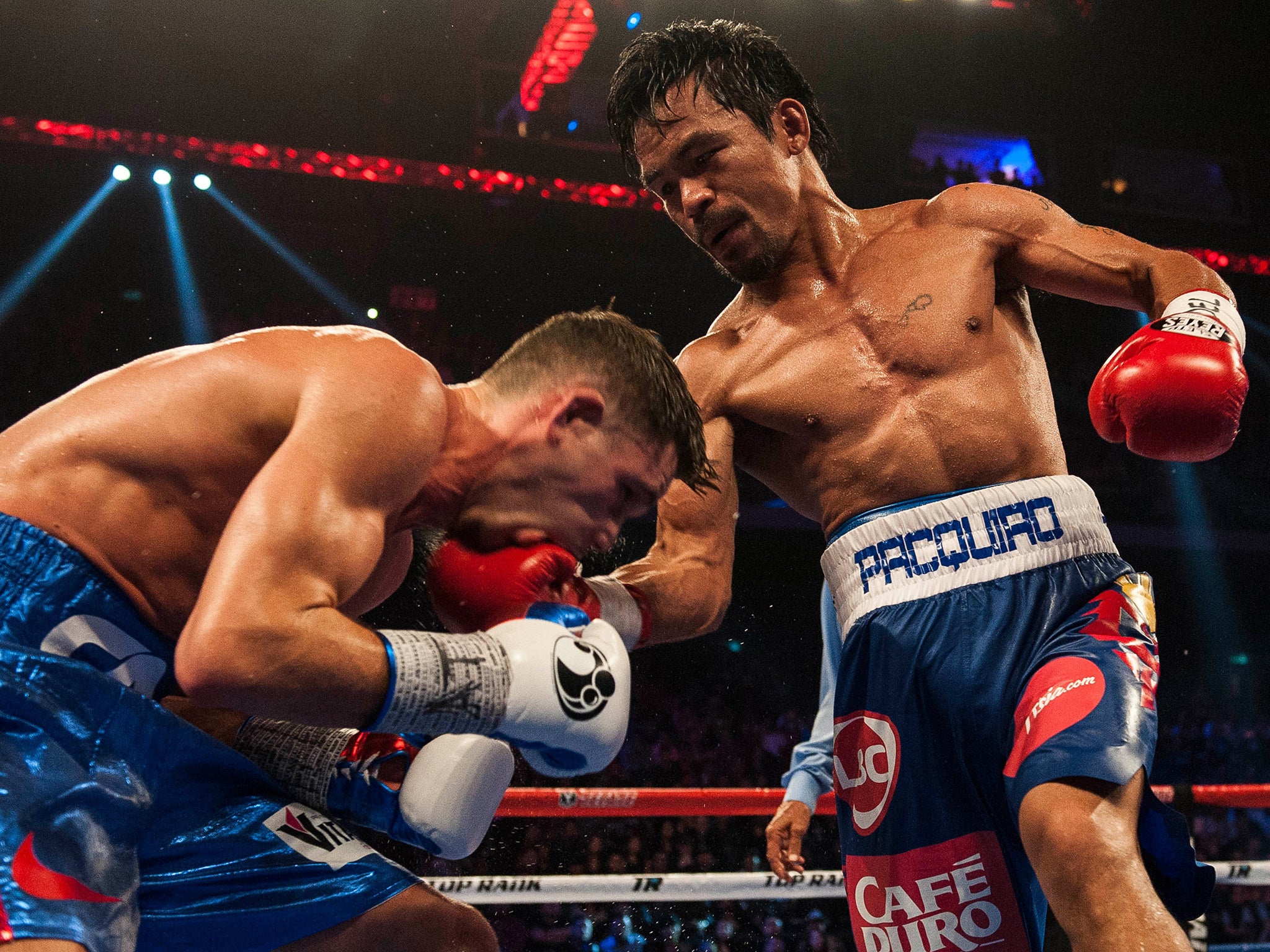
"He is a creature of habit, and he's sort of attuned his body and his performance to the May and September," Espinoza said of Mayweather's refusal to move off of the May 2 target date for his next fight. "The only question left was, which opponent? He was fixated, quite honestly, on Manny Pacquiao, and he continued to push us for that fight. He never really focused on anyone else."
Or maybe it's the fact that Pacquiao's back-to-back losses in 2012, by disputed split decision to Timothy Bradley and a one-punch knockout by Juan Manuel Marquez, lessened his leverage.
Pacquiao and Arum acceded on issues such as purse split (60-40 for Mayweather); whose name (Mayweather's) would be listed first on all promotional materials; who would enter the ring last (Mayweather), an honor normally reserved for a champion or, in the case of a unification fight, the bigger attraction; even on Mayweather's insistence that he be the one to formally announce that an agreement had been reached, which he did on a social media platform he invests in called Shots.
Former middleweight and light heavyweight champion Bernard Hopkins thought that put all responsibility for making the fight squarely on Mayweather.
"If you're the best pound-for-pound fighter in the world, you have to take the lead," Hopkins (below) said. "You have to demand fights like that. You have to show the people who are paying to see you on pay-per-view that you're serious about giving them what they want. And it's not just a money issue. Legacy is important, and it should be. It's not even so much about winning and losing, but about taking chances. You got to put yourself on the line if you want to separate yourself from everybody else."
--
To paraphrase author Thomas Hauser, in his assessment of the climactic rubber match between Muhammad Ali and Joe Frazier, Mayweather and Pacquiao are fighting for something much more important than the championship of the world; they're fighting for the championship of each other.
But it's not clear whether a match-up of Mayweather, who turns 38 Tuesday, and Pacquiao, 36, can live up to everyone's inflated expectations. Given the fighters' ages, and telltale signs of erosion, there is a creeping suspicion in some quarters that the action might prove to be anticlimactic, that the fight everyone has been dying to see has already passed its optimal sell-by date. Still, an overdue arrival is preferable to no arrival at all.

"The fact it's taken five years to come about creates a highly anticipated fight," said Hall of Famer Sugar Ray Leonard, no stranger to must-see bouts. "It's one of those magical events that, back in the day, would take place every six months or every year.
"With Pacquiao and Mayweather, three, four or five years ago, there was a lot of magic because you didn't know who was going to win. The general consensus was pretty much split down the middle. Now? Well, age is a factor. You hear, 'Oh, he's not what he used to be,' or 'He's slowed down a little bit.' It's a fact that Pacquiao has been knocked out (by Juan Manuel Marquez in 2012).
"Will it still sell? Yeah, definitely. It'll break all records. Even if the fight took place two years from now, it'd probably produce astronomical numbers, crazy numbers. Fans want to see it. They don't care who's responsible or mostly responsible for the fight taking so long to make. They don't give a crap who's promoted or managed by whom. They want to see a fight that reminds them of what this sport was back in the day."
Some superfight s— such as the first meeting of welterweight champions Leonard and Thomas Hearns, on 16 September, 1981, in which Leonard came from behind on the scorecards to register a dramatic, 14th-round technical knockout—delivered all that had been hoped for, and more. But making that match was a relatively simple task: Sugar Ray was 25 then and Hearns just 22; they shared the same promoter (Arum); and, perhaps most important, each wanted to fight the other.
--
When Mayweather signed his massive contract with Showtime in 2013, the prevailing sentiment was that any chance of his squaring off against Pacquiao had been effectively squashed. Not only would they have to reach an accord among themselves, but so would their premium-cable patrons, and the rivalry between HBO and Showtime is as intense in its own way as that separating the fighters.
Only once previously—the 2002 heavyweight matchup of HBO's Lennox Lewis and Showtime's Mike Tyson in Memphis—had the warring factions consented to do a dual pay-per-view telecast. And while that was a success in one sense, it was a disaster in another.
"During that Lewis-Tyson promotion, they had to have a weekly conference call with all the lawyers that were involved," recalled Main Events President Kathy Duva, whose late husband, Dan, promoted Lewis. "Those calls would last two or three hours every Tuesday. You had lawyers literally arguing over who would bring the stool into the ring. I mean, crazy stuff. The Tyson and Lewis camps were trying to screw each other in so many ways, I can't even begin to count them all."
The principals in that negotiation from hell have moved on. Ross Greenburg was replaced as president of HBO Sports by Hershman, who spent 20 years as a Showtime executive before going over to the other side in 2011, while Espinoza has taken the place of Hershman, who had succeeded the late Jay Larkin. All that shuffling in the executive boardrooms ostensibly has resulted in a somewhat kinder, gentler tone at the bargaining table, if not necessarily a friction-free one.
"We're best friends," Hershman said of his relationship with Espinoza, which may be overstating the case just a tad. "No, we work for competitors, but it doesn't mean we don't travel in the same circles. We've known each other for a long time, and there's a lot of history. It's not difficult for us to get on the phone and talk about what challenges we have to contend with. It's a very healthy relationship. It doesn't matter if we're going out for a beer afterward. What's important is that we did everything we could to get this deal done."
So the fight that for so long had been the stuff of dreams is now a reality. Enjoy it while you can, because there is no rematch clause and every sign points to Mayweather-Pacquiao being a one-and-done. Then again…
"Ask me that question on May 3," Hershman said, barely suppressing his amazement, when asked if there might be a do-over.
Espinoza, however, said anything is possible if both sides are willing to submit themselves to another ordeal by negotiation. "If it's something the fans want," he said, "then the networks will find a way to make it happen."
--
Bernard Fernandez is a former five-term president of the Boxing Writers Association of America and winner of the Nat Fleischer Award for excellence in boxing journalism. He has covered boxing for the Philadelphia Daily News, The Ring magazine and thesweetscience.com.
Bleacher Report's five-star Mobile App 'Team Stream' helps you follow the world of sport 24-7: Download it here
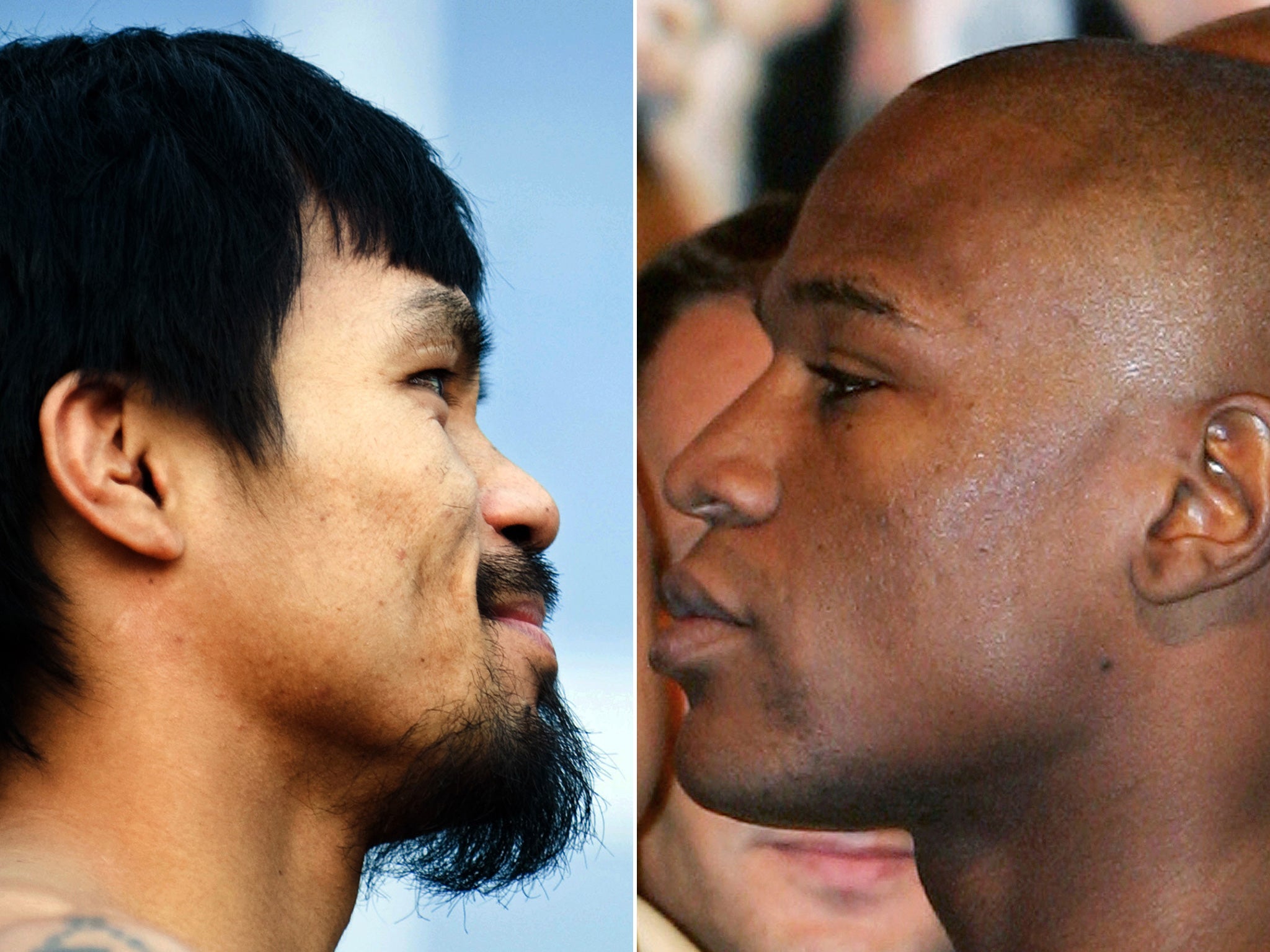
Join our commenting forum
Join thought-provoking conversations, follow other Independent readers and see their replies
Comments